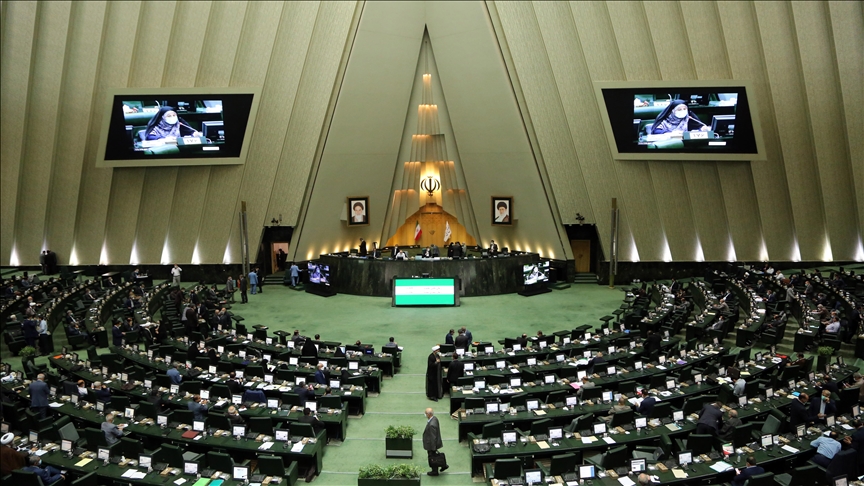Iran’s parliament approves Hijab and Chastity Bill for trial period of 3 years
Bill was introduced after death of Iranian woman Mahsa Amini while in police custody last year
 A view of the Iranian Parliament is seen in Tehran, Iran ( Fatemeh Bahrami - Anadolu Agency )
A view of the Iranian Parliament is seen in Tehran, Iran ( Fatemeh Bahrami - Anadolu Agency )
TEHRAN, Iran
Iran’s parliament on Wednesday agreed to the trial implementation of the Chastity and Hijab Bill for a period of three years after a majority of lawmakers voted in favor of it, state media reported.
Following the report by the parliament’s Judicial and Legal Commission, the bill was put to vote with 152 members of the house voting in favor of it, 34 against and seven abstentions.
Before the vote, Musa Ghazanfarabadi, the head of the Judicial and Legal Commission, said the bill comprises five chapters, which deal with general duties of the executive bodies, specific duties of the executive bodies, public duties and social responsibility, and crimes and violations.
The lawmakers differed on the trial period, according to reports, with some proposing five years, but ultimately they agreed on the trial period of three years, after which it will become a permanent law.
Parliament Speaker Mohammad Baqer Ghalibaf said the judiciary has in a letter supported the report of the parliament’s Judicial and Legal Commission on the Hijab and Chastity Bill.
The bill, which UN experts have criticized, was introduced in the Iranian parliament in May and seeks to enforce the mandatory dress code of the Islamic republic.
It stipulates monetary fines against those not observing the dress code but does not recommend harsher penalties, according to reports.
The issue of mandatory dress code has been in the news since the death of 22-year-old Iranian woman Mahsa Amini while in police custody in September last year, which sparked countrywide protests.
After her death, Iranian authorities suspended the public activities of the morality police, which had detained Amini in Tehran allegedly for not adhering to the mandatory Islamic dress code.
In February, a plan to use smart surveillance systems was introduced to enforce the mandatory Hijab norms but the plan didn’t work out the way the authorities wanted.
Sept. 16 marked the first anniversary of the death of Amini.








